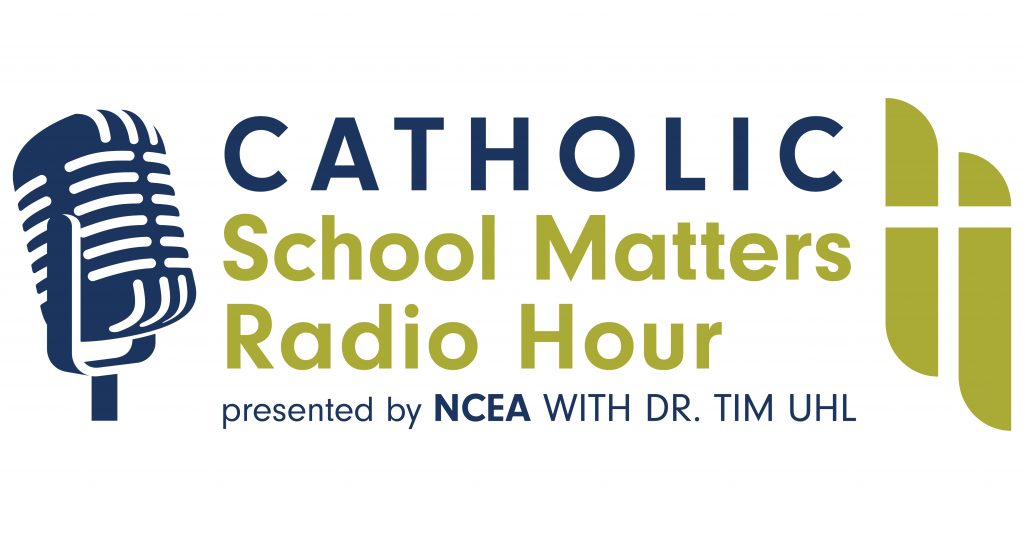
Here is a link to this week’s Catholic School Matters podcast featuring three great guests. First, the focus is on the border as two Catholic school leaders discuss how the immigration crisis has impacted their school communities. Then, educational reformer Stephanie Saroki de Garcia joins the podcast to discuss the work of Seton Education partners, including a new initiative in the Rio Grande Valley.
Dr. Guadalupe Perez
I spoke to Dr. Guadalupe Perez, the second-year superintendent of the Diocese of Laredo, in order to get a sense of the reality of the border Catholic schools. She shared that the immigration has dropped but they’ve had to close two Catholic schools due to low enrollment. Laredo is safe but their sister city (Nuevo Laredo) has been experiencing instability and high crime rates.
We discussed why enrollment is so difficult in Laredo with so many Catholic children. Dr. Perez mentioned that Catholic education isn’t a financial priority since the public schools are free. She mentions that the reason is financial—with very little subsidy money coming from parishes or the diocese, most of the operating budget must come from tuition.
Dr. Perez explains why she enjoys her job. The differences with the public school system, of which she knew very little. She has very little bureaucracy to deal with and has a lot of work to do to bring the schools together.
Sylvia Benning
The principal of St. Charles Catholic School in San Diego, Sylvia Benning, joins the podcast to discuss the changes which have impacted the school. The school is six miles from the border and is a working- and middle-class demographic with a high percentage of military families and a quarter of the student population crosses the border from Tijuana every day.
She explains how the 40 students cross the border every day and what their commute looks like—what time they wake, what the border crossing looks like, and how changes to immigration policies impact their commute. Benning discussed how many students cross the border to attend San Diego Catholic schools.
Benning discussed how the “negative emotions” associated with people coming from Mexico has impacted their school and her belief that social justice teachings of the Church inspire her to care for all Catholics.
She then discussed how the opening of a shelter for asylum seekers across the street from the school impacted the school. This presented some new challenges and certainly brought the border crisis to their front door. It also presented Benning with a conundrum—the Diocese asked her to keep the shelter under wraps while her desire for transparency demanded that she communicate with her parents.
Benning also shared that there is an alarming fear about the closure of the border and how the fearful rhetoric has impacted the students, who shared their fears and concerns. She also shares her experience with the undocumented: workers, school parents, and the community at large.
Stephanie Saroki de Garcia
The co-founder of Seton Partners, Stephanie Saroki de Garcia is a return guest to the podcast. She discusses their Brilla charter school initiative, the blending learning programs, and their new Catholic school in Cincinnati, Resurrection Catholic Academy.
Brilla is a charter program in New York City which offers after-school faith formation. Stephanie revealed that they are hoping to expand to a diocese in Texas. Brilla is controversial which even Stephanie admits. Last year, we recorded a podcast which she asked to hold due to their desire NOT to upset their charter school position.
Their blended learning network began at Mission Dolores in San Francisco and has grown to thirteen schools.
The Resurrection Catholic Academy is a takeover of a Catholic school which was struggling. They now have management of a Catholic school in cooperation with a voucher program. This is a radical new innovation with potential to impact Catholic schools nationwide. They will also use their Seton Teaching Fellows here—a one-year volunteer teaching program.
We then discuss the biggest blind spots in management changes—namely, Catholic identity and operating systems of different dioceses and how Seton Education Partners is poised to meet those challenges.